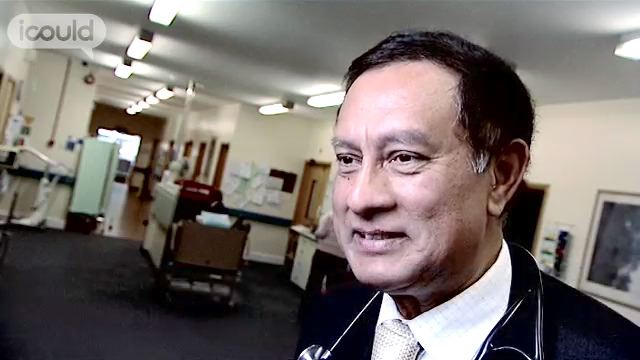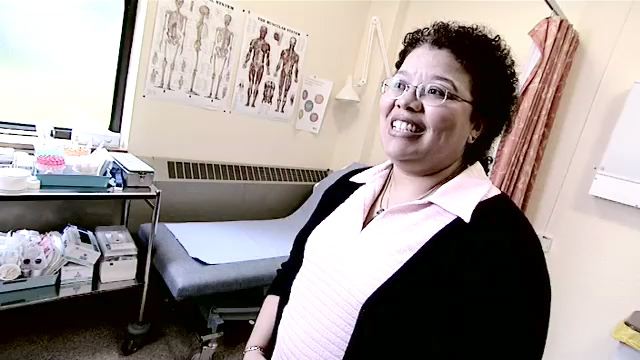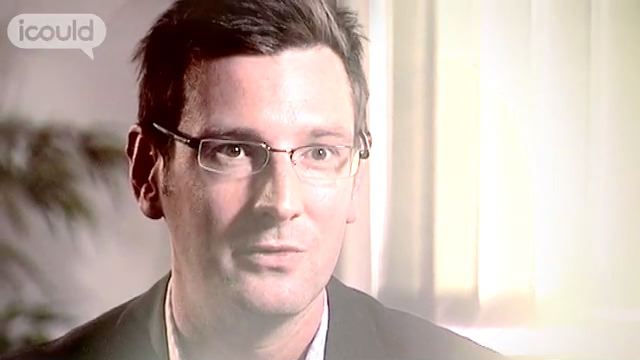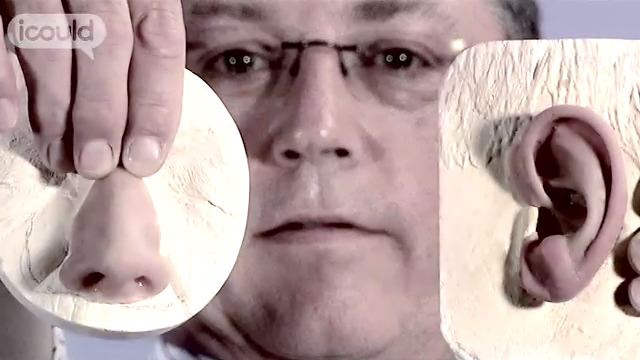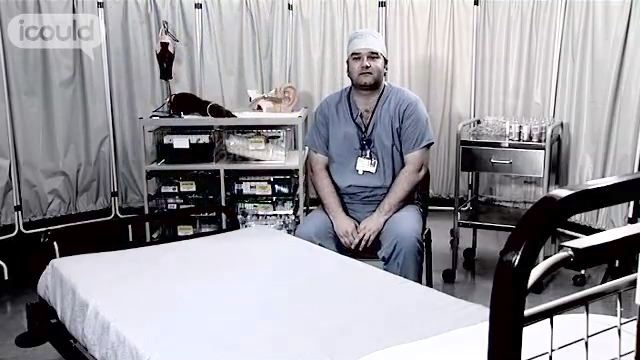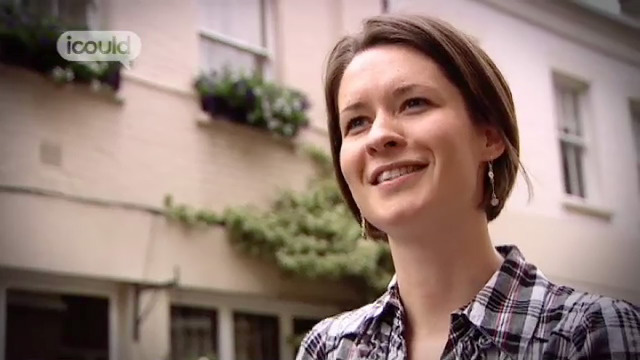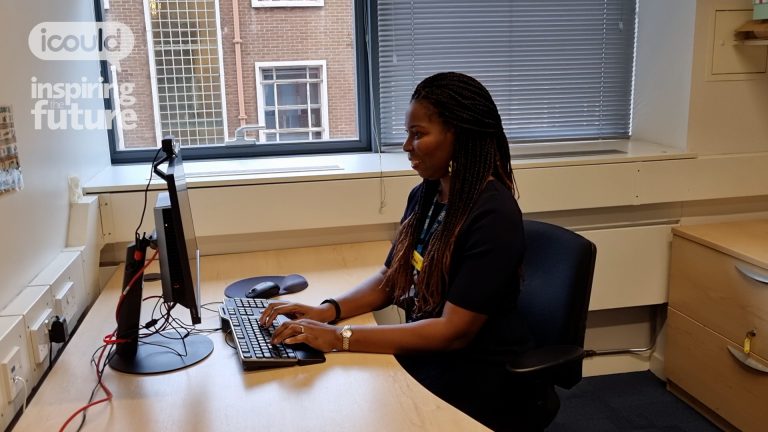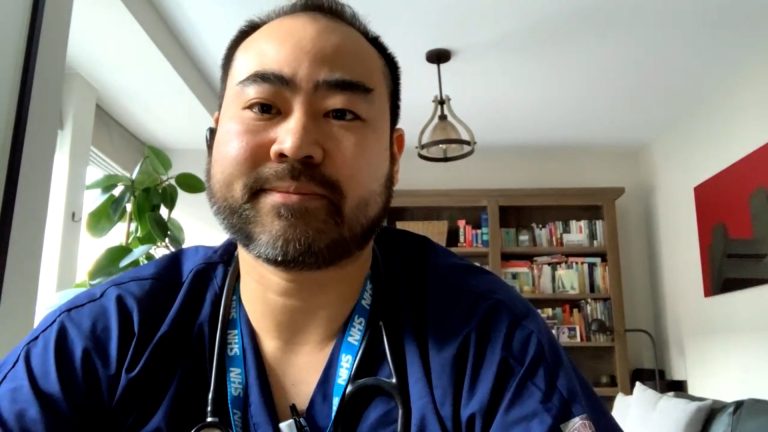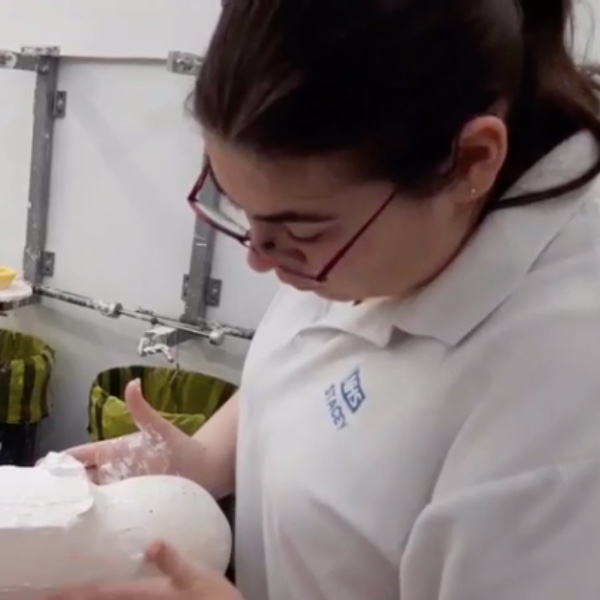Consultant Neurologist
Frimley Health NHS Foundation Trust
00:00:07:01 – 00:00:10:02
I’m Krishna. So I’m a consultant neurologist,
00:00:10:12 – 00:00:15:10
which is a senior doctor who specializes in brain and nerve diseases.
00:00:15:19 – 00:00:18:16
Typically, that might involve diseases such as migraines
00:00:19:19 – 00:00:22:21
people with headaches, with numbness or weakness,
00:00:23:12 – 00:00:25:05
or people with blackouts.
00:00:25:23 – 00:00:30:00
There’s probably a bit of a cliché, but it really is very satisfying
00:00:30:00 – 00:00:34:12
to see patients who have some symptom or some problem
00:00:34:12 – 00:00:37:18
that’s significantly affecting their lives and to actually be able
00:00:37:18 – 00:00:43:01
to make a difference, either cure it or minimize it with different
00:00:43:01 – 00:00:45:23
treatments, with medicines or with surgery or with procedures.
00:00:46:20 – 00:00:51:17
So, for example, one patient I saw was an elderly man who had double vision
00:00:51:20 – 00:00:56:02
and a droopy eyelid and couldn’t see clearly – wasn’t able to drive anymore
00:00:56:22 – 00:00:59:22
and I diagnosed a condition that was affecting the muscles,
00:00:59:22 – 00:01:04:01
controlling his eye movements and gave him tablets and within a few days
00:01:04:15 – 00:01:07:19
his double vision cleared up so he could read again and he could drive again.
00:01:08:04 – 00:01:12:02
And so it brings about a big functional improvement in his symptoms.
00:01:12:10 – 00:01:15:17
It’s very satisfying to be able to do that.
00:01:16:13 – 00:01:20:02
Equally satisfying is also teaching, and that’s a big interest of mine.
00:01:20:02 – 00:01:25:04
So I teach medical students or doctors in training or nurses or physiotherapists.
00:01:26:01 – 00:01:28:08
We do like to be organized and methodical
00:01:28:08 – 00:01:31:15
and partly because of the structure of the brain and the nerves we like to.
00:01:31:15 – 00:01:33:09
So it’s like detective work.
00:01:33:09 – 00:01:35:14
We like to narrow down and pinpoint
00:01:35:14 – 00:01:39:17
where a disease could be in the network that is our brain and nerves.
00:01:39:17 – 00:01:42:20
One example would be if someone had a blackout
00:01:42:23 – 00:01:46:23
and I’m trying to work out what caused that, then I’d be asking the patient
00:01:46:23 – 00:01:49:13
of course, what happened before and after what they were doing.
00:01:50:00 – 00:01:52:10
But then I’d also be keen to talk to an eyewitness,
00:01:52:17 – 00:01:56:04
I’d be keen to chat to paramedics, A&E staff, to other doctors
00:01:56:23 – 00:02:00:02
and look through their whole medical history and try to piece together
00:02:00:04 – 00:02:03:11
all these different aspects and get different accounts of what happened.
00:02:03:18 – 00:02:05:05
And then I’ll come to a conclusion.
00:02:06:03 – 00:02:07:23
I focused on sciences for A-levels.
00:02:07:23 – 00:02:10:02
I did chemistry, maths and physics.
00:02:10:02 – 00:02:13:03
After that, I applied for Imperial College School of Medicine
00:02:13:18 – 00:02:14:12
in London,
00:02:14:12 – 00:02:18:16
and my attraction to that particular course was that it was a six year degree
00:02:18:16 – 00:02:22:21
which incorporated further research, so a year of research, where we obtained
00:02:23:08 – 00:02:27:06
an additional science degree and mine was in neuroscience.
00:02:28:16 – 00:02:32:05
So after medical school the pathway was quite long for me.
00:02:32:05 – 00:02:37:03
So I spent 13 years in training and this involved a lot of shift work,
00:02:37:03 – 00:02:37:18
so a lot of night
00:02:37:18 – 00:02:41:04
shifts, a lot of weekend shifts and we experience different specialties.
00:02:41:04 – 00:02:43:15
I took a year out to go to Australia.
00:02:44:03 – 00:02:46:11
I was working as a doctor in Sydney.
00:02:46:11 – 00:02:47:16
That was an amazing experience.
00:02:47:16 – 00:02:51:02
It was just great to be in a different country, learn about different health care systems.
00:02:51:16 – 00:02:54:03
I also did a PhD in epilepsy genetics.
00:02:54:19 – 00:02:56:07
So if you enjoy talking to people
00:02:56:10 – 00:03:03:06
and if you enjoy helping people, then I think medicine is the best career out there.
00:05:16:00 – 00:05:16:08
Okay.
“It’s like detective work. We like to narrow down and pinpoint where a disease could be in the network that is our brain and nerves.” After medical school, Krishna spent 13 years training. He also took a year out to work as a doctor in Australia which he says was an amazing experience.
More information about Generalist medical practitioners
The UK average salary is £29,813
There are 37.5 hours in the average working week
The UK workforce is 47% female and 53% male
Future employment
- Examines patient, arranges for any necessary x-rays or other tests and interprets results
- Diagnoses condition and prescribes and/or administers appropriate treatment
- Administers medical tests and inoculations against communicable diseases
- Supervises patient’s progress and advises on diet, exercise and other preventative action
- Refers patient to specialist where necessary and liaises with specialist
- Prepares and delivers lectures, undertakes research, and conducts and participates in clinical trials
- Supervises the implementation of care and treatment plans by other healthcare providers
